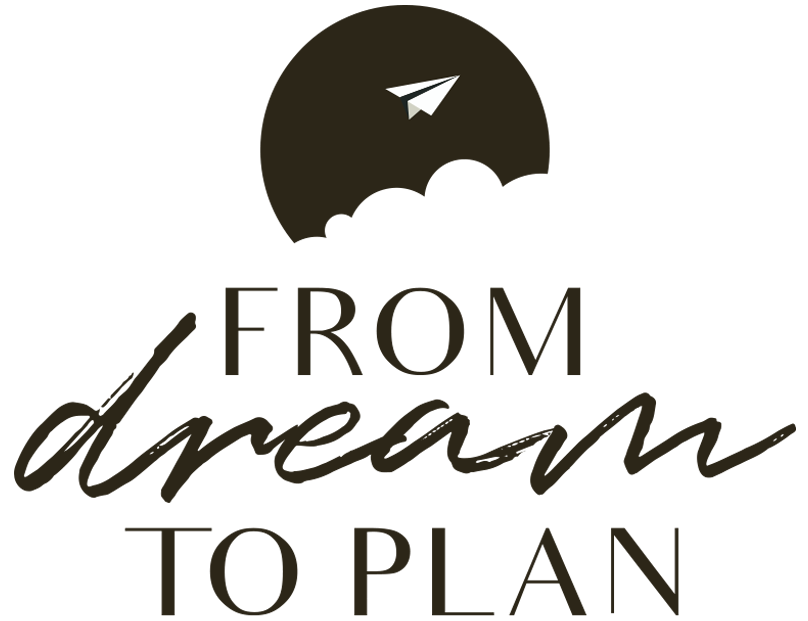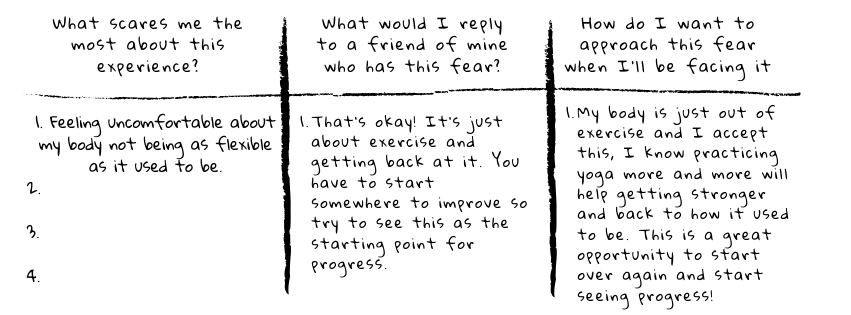The Beginner Feeling: How To Turn It To Your Advantage
A while ago a friend of mine invited me to join her for a special yoga class at her gym. I immediately accepted “it’s ages I actually don’t go to a yoga class so this might be a great way to get back at it!”
10 minutes in the class and oh my, I definitely felt it was a while I didn’t practice any yoga! I used to be quite flexible and now I even struggled with simple things like staying balanced. It felt weird, uncomfortable and almost as if my body was telling me “you girl thought it was this simple?!”
It felt like being a beginner.
Can you relate to this feeling?
Whether it’s something that you try for the first time or something that you get back at after a while, being a beginner is a feeling that we experience plenty of times.
And let’s be honest, no one is born knowing things. We are all beginners at some point. Whether it’s for basic needs like a toddler learning to walk or for things like learning to swim or learning to paint, we are all multiple-times beginners! The difference in being a beginner when you are a child and when you are a grown up is the awareness.
Kids often just throw themselves into activities, making mistakes and then by learning from these and being guided to what’s right, they improve and just keep going.
As grown ups we frequently have this thing that we should already know how to do stuff. Maybe because we did it in the past, or because someone we know does it and it doesn’t look that difficult. There are plenty of self-excuses we create so that we should already know how to. All this mainly because:
Being a beginner is uncomfortable.Truth is, not knowing something you’d like to is awkward. The “not knowing” feeling resides out of our comfort zone and that means that we need to take actions to go out of it which most of the time is not as easy as it sounds.
Being a beginner is annoying. As you are not mastering the action/activity yet you are more inclined to make mistakes and errors which when done repeatedly is irritating and can cause stress.
Being a beginner can lead to easily giving up.The more mistakes and errors we make, the more likely we get unmotivated to try again as we think we *should* be able to do it easily. As a consequence, we find ourselves giving up on trying.
Being a beginner can’t be an excuse though. Considering we’ll find ourselves wearing this hat plenty of times, finding a way to wear this in the most comfortable way as possible, is key!
Here are 3 actions to approach being a beginner in a way that will lead to a successful outcome:
#1 MASTER YOUR MINDSET
Mindset is eeeverything! Approaching a new beginning with an open mind is essential in order to get the most out of the experience. Having an open mindset means you are allowing new learnings and new discoveries. When facing a new experience, it’s very likely that the reasons why we feel blocked and uncomfortable are our fears.Here is an exercise that can help you with outlining your fears and framing your mindset to overcome these when facing them:
Experience: Eg. First yoga class after ages
Also, for more in-depth work to master your mindset I have done a FREE email course that will help you with this! SUBSCRIBE TO THE COURSE HERE
#2 TRACK YOUR PROGRESS
Giving up quickly is very easy when you are learning something new and not yet feeling totally confident about it. Finding a way to keep yourself accountable is a simple yet very motivating method to keep going!
Mark on your calendar, start a journal or simply write down in a notepad your daily/weekly progress on that specific activity will make you realise over time how every little step and effort counts.
#3 SHARE YOUR WINS
Motivation comes within and tracking your progress will be great for that but as humans we also value external support as a great accountability weapon.
Finding a buddy who to share this activity with would be ideal so you can support each other but I know it’s not always possible to have a partner-in-crime. This doesn’t mean you should leave your wins unshared!
There are plenty of ways to find external support and encouragement, here are a couple of ideas:
Talk about it with your group of friends, family or trusted ones
Join an online community (such as FB groups) or real-life community (such as meet-ups groups) with people passionate about the activity you started
Start a social media profile where you share your journey and progress
When was the last time you felt like a beginner and what would you tell that beginner self now? I’d love to hear from you!

